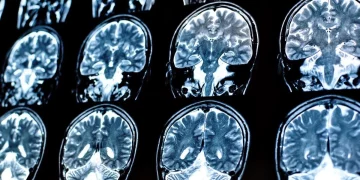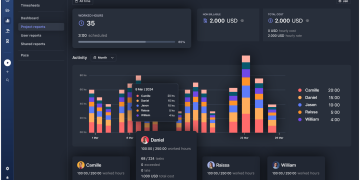Life is a journey, a constantly evolving landscape where every experience, every encounter, and every moment of introspection reshapes the way we perceive the world. One of the most fascinating aspects of this journey is how our personal horizons—the boundaries of our understanding, ambitions, and emotional capacities—shift over time. From the curiosity of childhood to the reflective wisdom of old age, our horizons are in perpetual motion, expanding and contracting in response to our experiences, choices, and inner growth. This article explores the intricate dynamics of personal horizons, revealing how age and life experience redefine them in subtle, profound, and sometimes surprising ways.
1. The Concept of Personal Horizons
The term personal horizons is a metaphorical way of describing the limits and scope of what an individual can perceive, understand, and aspire to. Imagine standing on a hilltop: the distance you can see is your horizon. The higher you climb, the further your gaze extends, revealing new landscapes and unseen possibilities. Similarly, in life, our personal horizons represent our cognitive, emotional, and experiential boundaries—the edges of our current knowledge, empathy, and ambition.
Personal horizons are multi-dimensional. They encompass:
- Cognitive Horizons: The breadth of knowledge, analytical skills, and understanding of the world.
- Emotional Horizons: The capacity for empathy, emotional regulation, and interpersonal connection.
- Experiential Horizons: The range of life experiences, from travel and education to challenges and failures.
- Moral and Ethical Horizons: The complexity of moral reasoning, ethical awareness, and values.
- Aspirational Horizons: The ambitions, goals, and dreams we pursue in life.
All these dimensions evolve over time, shaped by both age and experience. But the trajectory is rarely linear.
2. Childhood: Expanding the First Horizons
Childhood is the launching pad of personal horizons. In these formative years, our horizons are relatively small but highly malleable. They are defined by curiosity, imagination, and the eagerness to explore the unknown.
- Cognitive Expansion: Children are sponges, absorbing languages, patterns, and problem-solving skills at an astonishing pace. Their understanding of cause and effect, social norms, and abstract concepts rapidly broadens. A five-year-old can move from counting objects to grasping the concept of time within a few short years.
- Emotional Development: Early interactions with caregivers and peers shape the capacity for empathy and self-awareness. A child’s emotional horizon is narrow but highly receptive. Experiences of love, loss, or conflict during these years can have disproportionate effects on emotional growth.
- Experiential Boundaries: Childhood experiences—schooling, play, family travel, and exposure to nature—form the first layers of experiential horizons. Novel experiences create a foundation for curiosity, resilience, and adaptability.
At this stage, horizons expand rapidly, driven primarily by novelty and the unfiltered engagement with the world. Mistakes, imagination, and experimentation are the engines of growth.
Fun Insight: Neuroscience suggests that the young brain’s plasticity is at its peak during childhood, meaning that the “horizon expansion rate” is literally hardwired to be fast.
3. Adolescence: Horizons Meet Complexity

Adolescence is a transitional phase, a stormy yet exhilarating period where personal horizons face new dimensions of complexity. The cognitive and emotional landscapes begin to intertwine with social and moral considerations.
- Cognitive Horizons: Abstract thinking blossoms. Teenagers begin to understand complex ideas such as justice, freedom, and identity. They challenge assumptions, question authority, and experiment with new ways of thinking.
- Emotional Horizons: Adolescence is characterized by heightened emotional intensity. Romantic feelings, peer influence, and the struggle for independence push emotional horizons to expand rapidly, sometimes unpredictably.
- Moral Horizons: Teens begin to develop personal ethical frameworks. Their moral reasoning evolves from simple notions of right and wrong to more nuanced understandings of fairness, loyalty, and societal obligations.
- Experiential Horizons: First jobs, extracurricular activities, travel, and even early failures teach lessons that reshape perceptions of possibility and limitation.
Adolescence is also when horizon conflicts emerge. The desire for independence clashes with the reality of limited experience. Dreams can outpace capabilities, creating tension but also fueling growth.
Interesting Observation: Studies suggest that teenagers often overestimate risks yet underestimate consequences, a cognitive pattern that paradoxically broadens horizons through exploration and boundary testing.
4. Young Adulthood: Horizons of Possibility
Young adulthood—roughly ages 18 to 35—is a period of ambitious horizon expansion. This stage is marked by a surge of independence, exploration, and identity solidification. The world suddenly seems vast and full of opportunities, and the horizon feels limitless.
- Cognitive Horizons: Higher education, professional training, and exposure to diverse perspectives deepen understanding. Critical thinking skills become sharper, and individuals learn to synthesize complex information.
- Emotional Horizons: Romantic relationships, friendships, and early career challenges foster emotional resilience. Young adults develop the ability to navigate nuanced interpersonal dynamics.
- Experiential Horizons: Travel, work, and lifestyle choices create a broader canvas of experiences. New cultures, ideas, and responsibilities push personal boundaries outward.
- Aspirational Horizons: Ambitions peak in early adulthood. Individuals are often driven by the desire to achieve, innovate, or make a mark on the world.
However, this period can also bring horizon limitations. Unrealistic expectations, fear of failure, or the constraints of financial and social realities can narrow perceived possibilities. Learning to reconcile dreams with reality is a defining challenge of this stage.
Fun Perspective: Neuroscientists note that the prefrontal cortex—the part of the brain responsible for planning and decision-making—is still maturing in early adulthood. This biological fact explains both the ambition and occasional impulsiveness of this stage.
5. Midlife: Horizons of Reflection and Realignment
Midlife, often spanning ages 35 to 60, is a stage where personal horizons shift from expansion to realignment. Experiences accumulate, and priorities often change. This stage is marked by introspection, recalibration, and the pursuit of deeper meaning.
- Cognitive Horizons: Knowledge becomes more integrated and sophisticated. Midlife individuals tend to excel in complex problem-solving and strategic thinking due to accumulated experience.
- Emotional Horizons: Emotional intelligence peaks. People often develop greater empathy, patience, and the ability to manage conflicts effectively. Emotional horizons deepen rather than broaden; the focus shifts from novelty to understanding nuance.
- Experiential Horizons: While the frequency of novel experiences may decline, the depth of engagement increases. Life lessons are internalized, and individuals often invest in relationships, hobbies, and careers with a focus on quality over quantity.
- Aspirational Horizons: Ambitions shift from external achievements to legacy, contribution, and personal fulfillment. Individuals start questioning the long-term impact of their actions on family, society, and self.
Midlife is also famously associated with the so-called “midlife crisis,” a period of perceived horizon contraction. However, modern research suggests that this phase is more often a time of recalibration rather than crisis—a chance to re-evaluate goals, reassess values, and expand horizons in directions aligned with authenticity.
Insightful Note: Midlife reflection often leads to “second bloom” experiences—career shifts, new hobbies, or travel—that expand horizons in unexpected directions.
6. Late Adulthood: Horizons of Wisdom and Depth
Late adulthood, typically beginning around age 60, represents a stage where horizons are defined less by quantity and more by quality. Physical capacities may decline, but cognitive, emotional, and moral horizons often reach their richest depth.
- Cognitive Horizons: While certain memory functions may decline, accumulated knowledge, judgment, and pattern recognition reach peak sophistication. Older adults excel in wisdom, understanding, and long-term perspective.
- Emotional Horizons: Emotional regulation is often at its finest. Seniors frequently report higher life satisfaction due to improved emotional resilience and realistic expectations.
- Experiential Horizons: With decades of life experiences, older adults can interpret new events through a rich tapestry of knowledge, allowing them to find meaning even in routine or adversity.
- Moral and Ethical Horizons: Ethical reasoning often becomes more nuanced, with an emphasis on fairness, empathy, and legacy. Life lessons give rise to broader societal and intergenerational perspectives.
Interesting Fact: Research shows that older adults prioritize emotionally meaningful experiences and relationships—a phenomenon called the “socioemotional selectivity effect”—reflecting a refined focus on horizon depth rather than breadth.
7. Experience as a Horizon Multiplier
While age provides a natural framework for horizon shifts, experience acts as a multiplier. A twenty-year-old who has traveled extensively, faced challenges, or engaged in diverse social contexts may possess a wider horizon than a forty-year-old with a more sheltered life. Similarly, continuous learning, adventurous exploration, and deliberate reflection can accelerate horizon expansion at any stage.
Experience shapes horizons in several ways:

- Failure and Resilience: Overcoming setbacks teaches flexibility and broadens perspectives.
- Travel and Cultural Exposure: Engaging with diverse cultures challenges assumptions and widens cognitive and emotional horizons.
- Mentorship and Relationships: Learning from others’ experiences provides vicarious horizon expansion.
- Creative and Intellectual Pursuits: Writing, art, and scientific inquiry push the edges of imagination and understanding.
In short, experience allows us to climb higher hills, revealing vistas that mere age alone cannot guarantee.
8. Factors That Influence Horizon Evolution
While age and experience are primary drivers, several additional factors shape how personal horizons change:
- Personality: Openness to experience, curiosity, and conscientiousness influence horizon growth.
- Socioeconomic Context: Access to education, travel, and diverse opportunities impacts the rate and breadth of expansion.
- Cultural Norms: Cultural expectations can either restrict or encourage horizon exploration.
- Life Philosophy: A reflective, growth-oriented mindset accelerates horizon broadening.
- Health and Energy: Physical and mental health significantly affect the capacity to explore, learn, and expand horizons.
Recognizing these factors is crucial for anyone who wishes to deliberately cultivate wider, richer horizons.
9. Patterns of Horizon Change Over a Lifetime
Summarizing the trajectory:
- Childhood: Rapid expansion driven by curiosity and neuroplasticity.
- Adolescence: Complexification with emotional turbulence and moral questioning.
- Young Adulthood: Maximum ambition and outward exploration.
- Midlife: Reflection, recalibration, and deeper engagement.
- Late Adulthood: Depth, wisdom, and selective refinement of horizons.
The pattern is less about linear growth and more about oscillating waves of expansion, contraction, and depth, shaped by age, experience, and intentional engagement with life.
10. Practical Ways to Expand Personal Horizons at Any Age
The good news: horizon expansion is never locked. Regardless of age, individuals can take deliberate steps to broaden their perspectives:
- Seek Novel Experiences: Travel, explore new hobbies, or learn new skills.
- Embrace Challenges: Take calculated risks to stretch comfort zones.
- Reflect Regularly: Journaling, meditation, or discussion fosters insight and understanding.
- Engage with Diversity: Interact with people from different cultures, professions, and backgrounds.
- Cultivate Curiosity: Ask questions, read widely, and explore unfamiliar subjects.
- Mentor and Teach: Sharing knowledge enhances both cognitive and emotional horizons.
By consciously pursuing growth, we can keep our horizons expanding, regardless of chronological age.
11. Conclusion: Life as a Horizon Expedition
Our personal horizons are living entities—they shift, stretch, and deepen as we age and accumulate experiences. Childhood offers boundless curiosity, adolescence injects complexity and rebellion, young adulthood fuels ambition, midlife encourages reflection, and late adulthood cultivates wisdom. Yet experience—both lived and observed—can amplify horizons at any stage, reminding us that age alone does not define our limits.
Understanding horizon dynamics is not merely an intellectual exercise; it is a guide to living a richer, more meaningful life. By consciously engaging with life’s challenges, learning continuously, and reflecting thoughtfully, we can ensure that our horizons are not fixed lines but ever-expanding vistas.
Life, ultimately, is an expedition—a journey across time, self, and world. Each stage offers new vantage points, and each experience is a hill to climb, revealing a view previously unseen. The higher we climb, the further we see, and the more profoundly we understand the intricate, beautiful landscape of existence.























